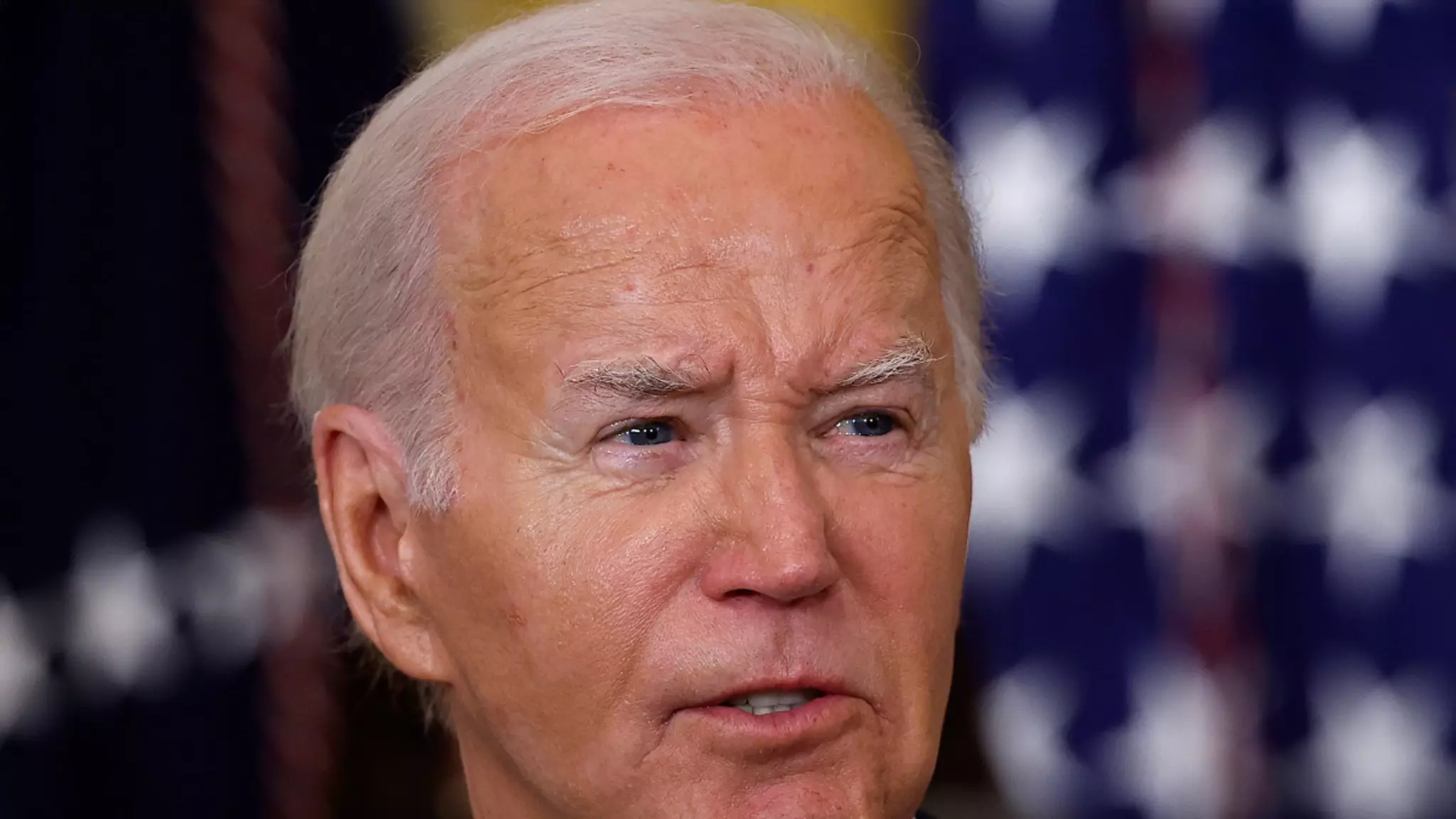The reality of aging in politics can be an unyielding scrutiny that affects not just the individual but the party they represent. Joe Biden, now 82 years old, embodies this struggle—his physical state has become a point of contention and concern among both his supporters and detractors. As outlined in “Original Sin” by Jake Tapper and Alex Thompson, behind-the-scenes revelations illustrate how Biden’s aides were prepared to maneuver around his declining physical health. The whispers of potentially using a wheelchair as a campaign prop speak volumes about the pressures that face aging leaders in the high-stakes arena of American politics.
Biden’s approach to campaigning, characterized by a cautious movement and occasionally stiff gait, prompted his aides to consider unorthodox measures to maintain a façade of vigor. While the intention was to shield Biden from the relentless speculation regarding his capabilities, it raises questions about transparency in leadership. Does the political machine owe it to the public to present a leader as they truly are, regardless of age? Such considerations poke holes in the narrative that prioritizes image over authenticity, suggesting a desperate longing for a return to a time when youth was synonymous with reliability in office.
Cognitive Concerns and Party Dynamics
In addition to physical health, cognitive abilities are equally scrutinized, with Biden’s mental acuity coming under fire last summer. The revelations from Tapper’s narratives indicate that the mounting pressure from within the Democratic Party regarding these cognitive assessments was significant—leading to internal rifts that demanded action. This turmoil culminated in Biden reconsidering his candidacy, paving the way for Vice President Kamala Harris to potentially step into a more prominent role.
This scenario draws an illuminating parallel to the ongoing debate within political arenas: the intersection of age, capability, and the expectations of voters. When does a leader cross the line from experience to being out of touch? Biden’s situation prompts a reassessment not only of his leadership but also of the generational expectations that voters subconsciously impose on their candidates.
The Intersection of Politics and Personal Health
Amidst these discussions of political maneuvering, Biden continues to face his own health struggles. Reports indicate that he is being monitored for a small prostate nodule, emphasizing the ongoing complexities of managing personal health while holding one of the world’s most scrutinized positions. The political sphere rarely offers sympathy for the vulnerabilities of its leaders; rather, these vulnerabilities draw ferocious attention and speculation.
Biden’s candid remarks during appearances, including his insights on facing off against Trump again, mirror a blend of confidence and fragility. The acknowledgment of external factors such as sexism in the political landscape adds depth to the discourse; it shows an awareness that the path to victory is often obscured by biases that impact candidates differently based on their gender or age.
Ultimately, Biden’s journey embodies more than personal milestones. It’s a potent reminder of the multifaceted layers of leadership, the pressures of public life, and the degrees of resilience required in facing both personal and professional battles. As a nation, grappling with these realities forces a confrontation with cultural attitudes towards age, political viability, and the very nature of our democratic ideals.

